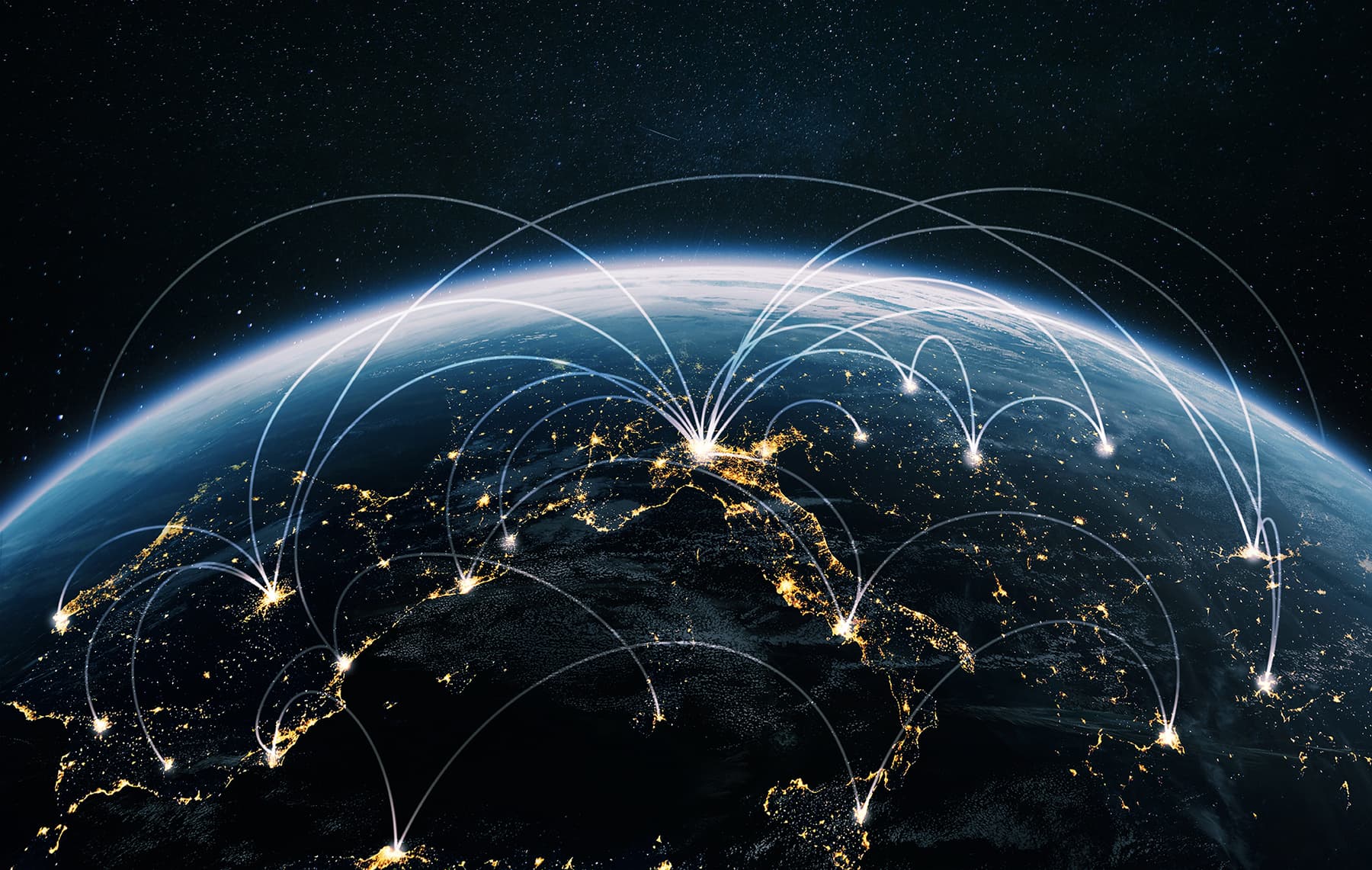Intelligence Analysis
5G and Next-Generation Wireless Networks Likely to Reshape Global Digital Mobility and Geopolitical Competition
9 SEP 2025
/
4 min read
Author
Crisis24 Intelligence Team

Key Takeaways:
- 5G and next-generation wireless networks are transforming global connectivity, enabling business innovation, and advancing 6G development.
Emerging economies are adopting 5G rapidly, while geopolitical competition is shaping infrastructure, regulation, and digital access.
Businesses and travelers are managing risks through strategic planning, secure network access, and resilient infrastructure.
The expansion of 5G, the fifth generation of wireless communication, and the development of other next-generation wireless networks are changing how the world connects and conducts business. Unlike earlier generations, 5G processes data closer to where it is created, reducing latency and significantly increasing speed. One of the major advantages of 5G is its support for network slicing, which allows operators to create multiple virtual networks tailored for specific use cases and supports business continuity.
While 5G continues expanding, initial 6G efforts are underway. In the US, the Next G Alliance – an industry consortium comprising major telecom companies, government agencies, and universities – is developing a roadmap that includes AI-native networks, interoperable standards, energy-efficient operations, and enhanced security. International standard-setting bodies are at present setting the technical requirements for 6G and planning for commercial deployment by 2030.
Global Adoption and Innovation
Emerging economies and technology hubs are rapidly adopting 5G to drive economic growth and attract investment. China has been a key player in Africa's 5G development with its state-owned enterprises building infrastructure in several countries. Two of Brazil’s largest telecommunications providers are investing in 5G networks to attract foreign investment. A leading South African mobile operator and cellular network is deploying 5G infrastructure and smart city solutions in partnership with local technology providers to support applications in financial technology (fintech) and other sectors.
In May, an Indian academic institution and a Japanese semiconductor company tested advanced Beyond 5G and 6G technologies to demonstrate how data can be transmitted reliably at high speed and connected to mobile systems for various applications, such as autonomous vehicles and satellite-ready Internet of Things (IoT).
Geopolitics, Opportunities, and Policy Challenges
However, the technical evolution of wireless systems cannot be separated from the geopolitical forces shaping their development and deployment. The strategic competition between the US, China, and other actors has escalated in recent years. Trade restrictions and regulatory fragmentation also influence which network equipment can be used, where it can be deployed, how data is secured, and who controls critical infrastructure.
Despite these challenges, emerging economies and technology hubs provide opportunities for international businesses and travelers. For businesses, these regions include access to expanding markets and a cost-effective workforce. For travelers, these regions often include advanced digital infrastructure and greater connectivity, which makes business and leisure travel more efficient and convenient.
Emerging economies and technology hubs also face operational challenges. The primary challenges include, but are not limited to, gaps in infrastructure that can limit connectivity, slow implementation of new systems, different governance norms surrounding privacy, and the role of government intervention in the private sector.
The next three years will likely bring growing nationalization of digital infrastructure and increased regulation of cross-border data flows. Governments will likely implement stricter compliance regimes for foreign tech firms operating in sensitive sectors, especially in AI and communications. Wireless network access may also become more conditional and be connected to security partnerships or trade negotiations.
Risk Mitigation for Businesses and Travelers
To mitigate risk, organizations should treat network access as a strategic asset and a potential risk. Businesses should identify critical operations that depend on wireless networks and assess their operational exposure to geopolitical frictions. Companies must prioritize multi-region redundancy in cloud services and network access, especially concerning supply chains or operations in sensitive regions.
International travelers should plan for secure network access by following local laws on encryption, data storage, device use, and VPN regulations. Visitors should rely on trusted roaming services rather than local SIM cards in high-risk areas and limit the number of connected devices carried, including laptops and emerging augmented or virtual reality equipment. Individuals should regularly update all devices with region-specific threat information and use device-level firewalls or endpoint security software to protect their personal and work-related systems.
Learn more about leveraging our industry-leading regional and subject matter experts for intelligence insights that help your organization proactively mitigate risks to your people and operations.
Related
Tags
Sharpen your
view of risk
Subscribe to our newsletter to receive our analysts’ latest insights in your inbox every week.
Intelligence & Insights
Intelligence
Worth Gathering
Employing a team of 200+ analysts around the world, Crisis24 is the only source you need for on-point, actionable insights on any risk-related topic.

Intelligence Analysis
Travel Considerations for Gender Non-Conforming Individuals
Gender non-conforming travelers may encounter documentation issues, security screening challenges, and limited access to care. Learn how to plan and reduce travel risks.
By Jacopo Di Bella
December 10, 2025

eBook
Preparing for the Soccer World Cup 2026 – Canada Travel Advisory
The upcoming World Cup tournament is set to be the largest in history unfolding across three nations – the US, Mexico, and Canada – with each country presenting unique security challenges for travelers. Learn about the specific risks associated with the games in Canada.
December 8, 2025

Intelligence Analysis
Severe Flooding in South Asia: Health Risks and Disease Concerns
Severe flooding across South Asia disrupts health services, increases waterborne disease risks, and challenges crisis response efforts.
By Robyn Mazriel, Jade Smith
December 4, 2025

Case Study
Embedded Intelligence, Embedded Advantage
Embedded intelligence transforms fragmented signals into foresight, giving leadership clarity on what’s happening, what it means, and what comes next.
December 3, 2025






